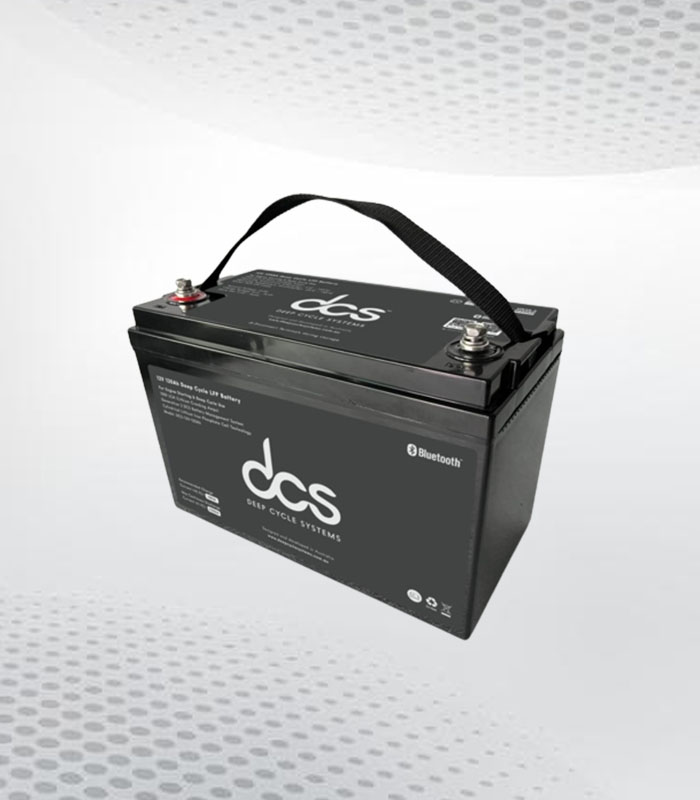The advancements in energy storage technology are at the forefront of shaping our sustainable future, and at the heart of this revolution lies the 120ah lithium battery. A powerhouse in the realm of energy solutions, this battery is changing the way we store and utilise energy across various sectors. From powering electric vehicles to supporting renewable energy systems, the versatility and efficiency of the 120-ah lithium battery are unparalleled. In this blog post, we delve into how this technological marvel is transforming the energy storage landscape, offering insights into its mechanics, advantages, applications, and much more.
Understanding The Basics Of The 120-ah lithium battery
A 120-ah lithium battery falls within the category of lithium-ion batteries, characterized by its capability to store a considerable amount of electrical energy. The term ‘120Ah’ denotes its capacity to deliver 120 amperes of current over the span of one hour, showcasing its aptitude for providing sustained power output. This feature is particularly beneficial for devices or systems that demand a reliable and enduring energy source.
Lithium-ion technology, renowned for its superior energy density, facilitates the creation of batteries that are not only potent but also comparatively lighter and more compact. This advantage is further complemented by their resilience to numerous charging cycles, which significantly enhances their service life while maintaining performance integrity. The technology behind these batteries allows for a versatile application range, catering to the needs of various sectors with efficiency and reliability.
Technological Advantages Over Traditional Batteries
The 120-ah lithium battery heralds a significant leap over its traditional lead-acid counterparts, presenting a suite of technological enhancements. Its superior energy density translates into a sleeker, more manageable form factor, shedding the bulk without sacrificing performance.
Unlike lead-acid batteries, which suffer from high self-discharge rates, lithium variants excel in retaining their charge for protracted durations, thus standing by, ready for use whenever needed. They further distinguish themselves by their resilience to wear, capable of enduring a greater number of charge-discharge cycles, thereby offering a longer operational lifespan.
This robustness extends to temperature tolerance as well, with lithium batteries maintaining consistent performance even under a broad spectrum of environmental conditions. This constellation of attributes – compactness, longevity, and reliability across temperatures – sets the 120-ah lithium battery apart, marking it as a pivotal upgrade in energy storage technology.
Diverse Applications Across Industries
The 120-ah lithium battery’s adaptability is evidenced by its widespread use across a multitude of sectors.
- Within the automotive industry, it is integral to powering a new era of electric vehicles, contributing to longer travel distances and heightened vehicle efficiency.
- The renewable energy sector benefits substantially, utilising these batteries to effectively store surplus energy from solar panels and wind turbines, thereby ensuring a reliable energy supply when natural conditions fluctuate.
- Furthermore, in telecommunications, these batteries provide essential power to remote equipment, facilitating consistent connectivity in areas lacking traditional infrastructure.
- The marine industry is also embracing electric propulsion, with these batteries enabling cleaner, quieter boating options.
- For enthusiasts of recreational vehicles, the 120-ah lithium battery offers the freedom of extended off-grid adventures, providing dependable energy for all on-board needs without the necessity for frequent recharging.
This broad applicability underscores the battery’s role in driving forward innovations and sustainability across a diverse array of industries.
Environmental Impact & Sustainability Considerations
The 120-ah lithium battery not only underpins a move towards more sustainable modes of transport and energy utilisation but also boasts a production process with a smaller ecological footprint than that of traditional batteries. This aspect is instrumental in minimizing the environmental degradation associated with battery manufacturing. Nevertheless, the importance of ethically sourcing lithium cannot be overstated, as the extraction process poses potential risks to ecosystems and communities.
Furthermore, to fully realize the environmental benefits of these batteries, the development of efficient recycling processes is imperative. Effective recycling not only mitigates the depletion of lithium resources but also ensures that batteries at the end of their life cycle do not contribute to landfill waste. Thus, while the 120-ah lithium battery presents a significant step forward in reducing carbon emissions and supporting renewable energy, a comprehensive approach to its lifecycle management is crucial for maintaining its sustainability credentials.
Maintenance Tips To Maximize Battery Life
To enhance the durability and performance of your 120-ah lithium battery, it is crucial to adopt a proactive approach to maintenance.
- Regularly keeping the battery’s charge between 20% and 80% is fundamental, as it helps avoid the stress associated with deep cycling, thus prolonging the battery’s operational lifespan.
- Ensuring the battery is kept in an environment that is both cool and dry is also vital, as extreme temperature fluctuations can have a detrimental effect on its efficacy and longevity.
- Additionally, conducting periodic checks on the battery’s charge status can preempt potential issues, while avoiding exposure to moisture will safeguard against corrosion and other damage.
- Implementing these maintenance practices will not only optimise your battery’s performance but also contribute to its enduring reliability.
The Future Of Energy Storage With Lithium Technology
The trajectory of lithium technology in energy storage heralds an era of exponential advancements and applications. Innovations are progressively aiming at augmenting the energy density, which directly influences how much power can be stored in smaller, more efficient units.
Concurrently, research is intensively focused on curtailing the time required for batteries to achieve full charge, enhancing user convenience and operational efficiency. A notable frontier in this field is the development of solid-state batteries, which are expected to offer superior performance metrics including heightened safety profiles, owing to their lack of liquid electrolytes which are prone to leakage and combustion. This evolution towards solid-state technology represents a significant leap forward, promising to further elevate the efficacy and application scope of lithium batteries in our quest for sustainable and reliable energy solutions.
As the demand for clean energy continues to ascend, driven by global renewable energy initiatives, the integration of advanced lithium battery technology such as the 120Ah variant is anticipated to play a critical role in bridging the gap between energy generation and its storage, ensuring that the future of energy storage is not only efficient but also aligned with environmental sustainability goals.
Making An Informed Purchase Decision
When embarking on the acquisition of a 120-ah lithium battery, careful consideration of your precise energy requirements is essential, as well as ensuring compatibility with your current systems. Investigating the reputation of the manufacturer is paramount to determine the quality and reliability of the battery. It is advisable to choose batteries that come with comprehensive warranties, which serve as a testament to their durability and the manufacturer’s confidence in their product.
Additionally, verifying the presence of safety certifications is crucial as it indicates adherence to established safety standards, providing peace of mind regarding the operational security of the battery. Assessing the total cost of ownership is also key, which encompasses not only the initial purchase price but also the maintenance expenses and the potential savings over the battery’s lifespan.
Long-Term Cost Benefits Of Lithium Batteries
Investing in lithium batteries, such as the 120Ah variant, initially might seem an expensive endeavor compared to traditional battery types.
The superior longevity of lithium batteries drastically reduces the need for frequent replacements, a common expenditure with lead-acid batteries. This extended service life, coupled with their higher efficiency, ensures a steady supply of power with fewer energy losses, contributing to notable savings in operational costs.
Additionally, the minimal maintenance demands of lithium batteries further diminish ongoing expenses, eliminating the costs associated with regular upkeep required by their counterparts. Moreover, the potential for energy bill reductions, facilitated by their efficient charge retention and the ability to harness renewable energy sources, adds another layer of cost-effectiveness.
Charging And Discharging Your 120 Ah Lithium Battery
- To optimize the lifespan and performance of your 120 ah lithium battery, it is crucial to adhere to proper charging and discharging practices.
- Employing a charger specifically designed for lithium batteries will ensure that your battery is charged in the most efficient manner, preserving its health and longevity. It is advisable to avoid allowing the battery to deplete completely before recharging.
- Instead, maintaining charge levels between partial discharge and recharge cycles will help sustain the battery’s capacity over time.
- Being mindful of the charging environment is also important; extreme temperatures can adversely affect the battery, so charging in a controlled environment is recommended.
By following these guidelines, you can ensure that your battery remains in optimal condition, ready to deliver reliable power when you need it.
Safely Storing Your 120-ah lithium battery
When it comes to the storage of your 120-ah lithium battery, prioritizing safety is essential. It’s imperative that the designated storage area is equipped with adequate ventilation to prevent the accumulation of potentially hazardous gases.
Positioning the battery away from any materials that are easily ignitable and out of direct exposure to sunlight is crucial to minimize risk. For those periods when the battery is not in active use, particularly for extended durations, charging it to approximately 50% capacity before storage is recommended.
This level is considered optimal for preserving the battery’s health and ensuring longevity. Conducting regular inspections for any indicators of damage or wear is also vital, as these checks can preempt safety concerns and maintain the battery in prime condition.
Lithium 120ah Battery: Features & Specifications
The lithium 120ah battery, a core component in modern energy storage solutions, embodies a range of technical attributes designed to meet the demands of various applications. It is distinguished by its nominal voltage, typically around 12V to 24V, catering to a wide array of electrical systems and devices. This battery’s energy density is a standout feature, enabling substantial power storage within a compact and lightweight form factor.
In terms of charging, the battery supports fast charging capabilities, reducing downtime and enhancing convenience for users. It is also equipped with built-in safety mechanisms, such as overcharge protection and temperature control, to ensure reliable operation under varying conditions. Moreover, the 120-ah lithium battery is designed with robust terminals that provide secure and efficient electrical connections, maximising energy transfer and minimizing potential losses.
Applications Of 120-ah lithium battery In Renewable Energy
The 120-ah lithium battery is making significant headway in the renewable energy sector, serving as a pivotal component for energy storage solutions. Its application in solar and wind energy systems is particularly noteworthy.
These batteries provide a reliable storage solution for capturing excess energy generated during peak sunlight or wind conditions, which can then be utilized during periods of low natural energy generation. This ability to store and release energy on demand enhances the efficiency and reliability of renewable energy systems, enabling a consistent power supply even in the absence of direct sunlight or wind.
Moreover, the integration of 120Ah lithium batteries in off-grid systems facilitates remote power generation capabilities, empowering communities and installations far removed from traditional power grids. These batteries also support the stabilization of the grid during high demand periods by storing surplus renewable energy and supplying it when needed, thus playing a critical role in the transition towards a more sustainable and resilient energy infrastructure.
FAQs
1. How long does a 120ah lithium battery last on a single charge?
– The duration a 120Ah battery will last depends on the energy demand of the devices it powers. For example, a device drawing 10 amps would theoretically run for about 12 hours. However, efficiency and environmental factors may influence this.
2. Can I use a 120-ah lithium battery for my solar power system?
– Absolutely. These batteries are highly suitable for solar setups due to their capacity to store excess energy, making them an excellent choice for off-grid and backup power solutions.
3. Is it safe to charge a 120-ah lithium battery to full capacity?
– Yes, it’s safe. However, to maximize lifespan and performance, maintaining a charge between 20% and 80% is generally recommended.
4. Are there any special requirements for disposing of a 120-ah lithium battery?
– Due to environmental concerns, lithium batteries should not be disposed of with regular waste. They must be taken to a specialized recycling or disposal facility that handles lithium batteries.
5. Can I use a 120-ah lithium battery in cold climates?
– While lithium batteries have a wide operational temperature range, extreme cold can reduce their performance. It’s advisable to store and charge them in a controlled environment when in very cold conditions.
Conclusion
In summary, the 120ah lithium battery stands as a cornerstone in the evolution of energy storage solutions, catalyzing the shift towards more sustainable and efficient energy utilisation across a broad spectrum of industries. Its superior design, coupled with exceptional performance characteristics, not only meets but anticipates the energy demands of modern applications.











